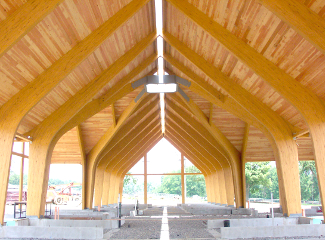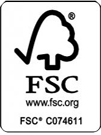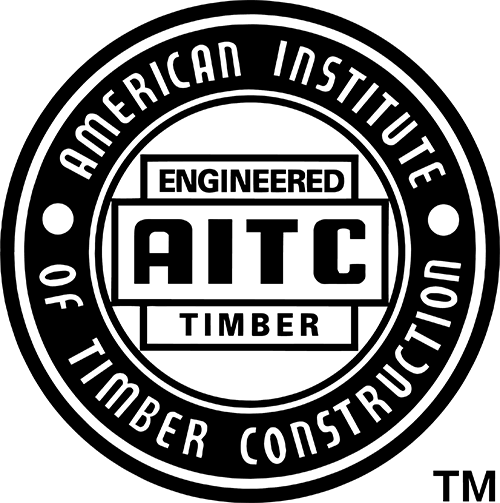CURVED GLUED LAMINATED MEMBERS
The flexibility of glulam and the expertise of Unalam can turn into reality almost any shape a designer can imagine. The best economics can, of course, be realized by following the minimum radius guidelines listed below.
We recommend using Southern Yellow Pine (SYP) for curved members due to its material properties, particularly radial tension strength.
TYPES
Pitched & Tapered Beams
These glulam beams follow the straight roof pitch on their top edge while the bottom forms a radius curve. Pitched and tapered beams taper from the tangent point to a minimum end depth to provide maximum economy. Optimal roof pitch is 2/12 to 3/12, though other roof pitches are possible. Inside radius of 20′-0″ or more allows use of 2″ nominal laminations. Use “beam” stress combinations, e.g. 24F-V3.
Curved Beams
Glulam beams with constant cross section and radius for barrel or dome roof profiles. Use “beam” stress combinations, e.g. 24F-V3.

Tudor Arches
A traditional 3-hinge arch design commonly used in glulam structures. Outside edge of glulam follows the straight wall (arch leg) up to the eave (arch knee), then follows the straight roof slope (arch arm.) Arch leg and arm taper down to the base and peak depths. The interior side of the arch uses a continuous ply, curved at the knee. Standard inside radius at the knee is typically 7′-0″. Optimal roof pitches are 3/12 or higher. Use “beam” stress combinations, e.g. 24F-V3.
Complex Curves
Reverse curves, combination curves, S-curve arches, spirals – we have done them all, and would love the challenge of something new!
Horizontally Curved Beams
Glulam beams that curve in plan use plies that are oriented vertically, therefore the finished height of the beam is based on standard glulam widths. Larger cross sections can be made via special wood manufacturing processes. We can even fabricate complete circles. Use “other member” stress combinations, e.g. #47/1:8.
Sizes
Specify glulam by true finished dimensions.
Widths:
3″, 5″, 6.5″, 8.5″, 10.5″ standard, 12″, 14″, 16″, 18″, 20″ extra wide
Depth:
Multiples of lam thickness based on:
-Minimum radius 20′-0″ or greater: 1.375″ laminations (standard 2″ plies)
-Minimum radius 7′-0″ or greater: 0.667″ laminations (standard 1″ plies)


